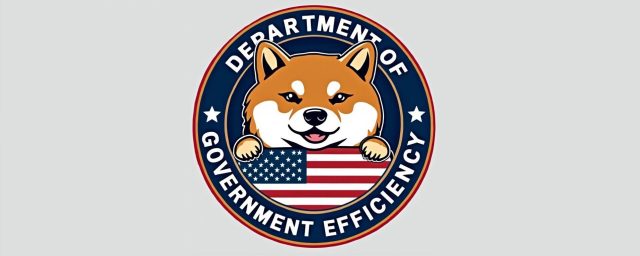
In a move that has left both Washington insiders and Silicon Valley spectators scratching their heads, and perhaps checking their cryptocurrency wallets, President-elect Donald Trump has appointed Elon Musk to co-chair the newly minted Department of Government Efficiency, or DOGE. Yes, you read that correctly: DOGE. While the acronym conveniently mirrors the popular meme cryptocurrency Dogecoin, this initiative is anything but a joke.
Elon Musk, the tech mogul known for ventures like Tesla and SpaceX, is set to lead DOGE alongside biotech entrepreneur Vivek Ramaswamy. Their mission? To slash government spending and trim the federal workforce with the precision of a SpaceX landing. Musk has been vocal about his desire to reduce government spending by a third, while Ramaswamy aims to cut 75% of the federal workforce.
According to a Wall Street Journal opinion piece penned by Musk and Ramaswamy, DOGE has its sights set on cutting $500 billion in annual federal spending. Their strategy includes reducing the number of federal agencies from over 400 to 99.
Key Players: The Usual Suspects and Some New Faces
Musk’s chief cost-cutter, Steve Davis, is reportedly recruiting staff for DOGE. Davis, known for his frugality at the Boring Company, once slashed project costs by negotiating discounts on used equipment and working out of a mobile home.
Additionally, former Trump staffer Katie Miller has been appointed to the advisory board, bringing her experience as a deputy press secretary and her marriage to incoming deputy chief of staff Stephen Miller into the mix.
Surprisingly, DOGE has garnered interest from both sides of the aisle. Democrats like Reps. Ro Khanna and Jared Moskowitz have expressed willingness to engage in discussions about reducing wasteful spending without compromising essential services. Senator Chris Coons emphasized the need for a balanced approach, cautioning against cuts to critical programs. Large-scale layoffs and spending cuts could spark backlash from labor unions, federal employees, and advocacy groups. While Musk’s outsider status might shield him initially, prolonged controversies could erode support.
While the specifics of DOGE’s plan remain under wraps, Musk and Ramaswamy have hinted at targeting areas ripe for reform, such as defense spending and regulatory frameworks. Critics argue that without transparency, these efforts could lead to the elimination of essential services under the guise of efficiency. Supporters, however, believe that Musk’s track record of innovation could bring much-needed disruption to bureaucratic stagnation.
The Dogecoin Connection: Coincidence or Calculated?
It’s impossible to ignore the acronym’s nod to Dogecoin, the meme-based cryptocurrency that Musk has famously championed. Following the announcement of DOGE, the value of Dogecoin spiked, leading some to speculate whether the naming was a deliberate move to boost the cryptocurrency’s profile—or Musk’s portfolio.
Musk’s net worth experienced a significant increase. As of November 22, 2024, reports indicate that Musk’s net worth surpassed $347.8 billion, marking a surge of approximately $70 billion after Trump’s presidential win.
This substantial growth can be attributed to the market confidence Musk’s companies gained and the policy influence the mogul gained. Leading DOGE positions Musk to advocate for policies that could benefit the tech and automotive industries, potentially enhancing the profitability of his ventures.
Will it Be “Lit” Or Will it Not Be “Lit”?
As DOGE prepares to take the reins, the question remains: Will this initiative lead to genuine government reform, or is it merely a rebranding of age-old austerity measures? With Elon Musk at the helm, one can expect a blend of innovation, controversy, and perhaps a few tweets that send both bureaucrats and investors into a frenzy. Only time will tell whether DOGE will be the catalyst for a leaner government, a mere advisory institution or just another meme in the annals of political history.



 Subscribe
Subscribe